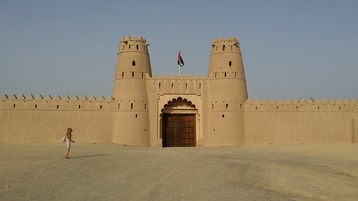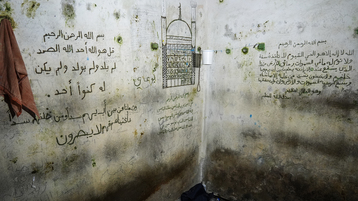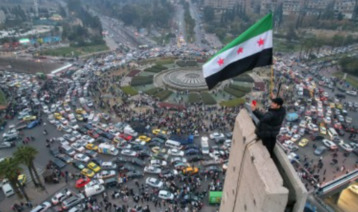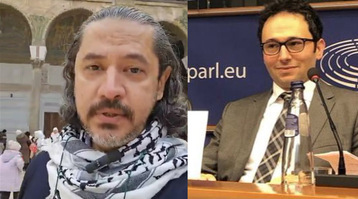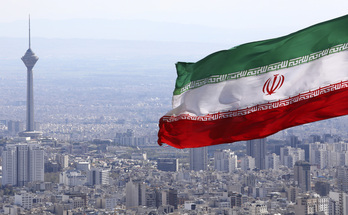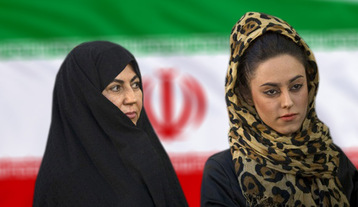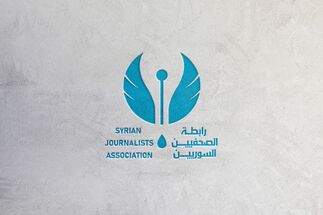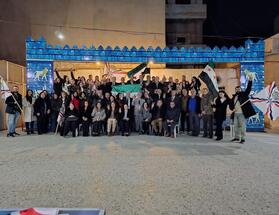-
Qatar's former interior minister hosts the masterminds of the September 11 attacks!?

A lengthy investigation of a Qatari farm, published by an Arab television channel on its website, said many details of the most famous farm in Qatar, not because of its momentum of production in the Qatari market, but because it was a huge den sheltering dozen of internationally wanted terrorists.
Its owner is the Minister of Interior, Qatari Minister of Religious Affairs and Endowments, Abdullah bin Khalid Al Thani, who is on the US and Arab Quartet Terrorist list, a pole of the ruling family, and a relative and friend of Qatar's former emir, Hamad bin Khalifa al-Thani.
The mastermind of 9/11 attacks
News of this farm and its owner kept coming and are still circulating through the most famous guests who masterminded the 9/11 attacks. He recently made statements about his willingness to cooperate to testify against Saudi Arabia in the claims filed by the families of the 9/11 victims, 17 years after his arrest at Guantánamo, and the completion of interrogations.
New details about the Qatari farm
The investigation reviewed new, non-current details of this farm, which came from many Western officials in the global intelligence services. What is this farm? And what happened in it? Where is it located? And what resulted?
The name is Al Waab Farm and is owned by Abdullah bin Khalid Al Thani, Minister of Religious Affairs and Endowments and former Minister of Interior, who is known for his interest in agriculture, hunting and animal husbandry.
Al Waab Farm is located in the north of Qatar specifically in Al Ghuwairiya, the largest plantation in Qatar, covering an area of 18 square kilometers. The Al Waab Animal Farm started as an investment project in 1998.
It contains a large chapel, his imam is an Iraqi with Qatari nationality, Hashem Mohammed Ali al-Mashhadani, who was the head of the guidance department of imams and preachers in the Ministry of Endowments and Islamic Affairs from 1998 to 2000, and head of the Family Affairs Department in the Department of Da'wa from 2000 to 2001, and a preacher at Al-Rayyan great Mosque.
According to Saqr Al Mohannadi, Public Relations Manager, Al Waab Farm, in an interview at the production of Qatar program for Al Rayyan TV in 2017, it contains wide green areas and different types of animals, such as ducks, geese, cows, sheep, horses, deer, camels and dogs. Falcons and crocodiles, the farm also produces eggs, milk, cheese, and honey, and sells them to Qatari markets in Al Waab companies as well as investing in meat.
The farm includes a total of 9 lakes, containing different types of ducks and geese French, English and Canadian, and the farm invests with meat and eggs, along with breeding birds and Senegalese wild pigeons of more than 13 species, and carrier pigeons, besides all this, a presidential palace where the Minister of Interior and Endowments Abdullah bin Khalid Al Thani, who is listed on terror lists, lived.
The animal farm of Abdullah Bin Khalid Al Thani also includes different breeds of sheep, including the Syrian Shami breed, in addition to raising cows to produce milk and dairy products, including up to 1500 heads of Dutch and European cows.
Camel production has received a lot of attention from the owner of the farm, to promote its heritage, according to the director of public relations for the farm "Al Waab", it has around 700 heads of various types, including Al Muhajim, Al Mughtir and Omani, In addition to breeding Arab horses, and participating in local and international competitions.
This is for the natural and expected side of the farm. Similar to this diversity of animals, there was another different diversity that Al Waab farm owner Abdullah bin Khalid Al Thani had begun to manage since the early 1990s, this time to bring together people of different nationalities, especially from Arab Afghans, recalling his "farm" scene in Peshawar at the time of the Afghan Jihad story. To be the headquarters of activity and recruitment and a destination for fundamentalists and extremist
According to a US Treasury Department report, Abdullah bin Khalifa al-Thani hosted the al-Waab animal farm, 100 of al-Qaeda extremists, according to a former US intelligence officer, Robert Baer, quoting a former Qatari official, Khalid Sheikh Mohammed ran an al-Qaeda cell with Shawqi Islambouli in Qatar.
Bin Laden in the Qatari Interior Minister's farm!
Al Qaida leader Osama bin Laden himself, who was guest of the farm owner Abdullah bin Khalid Al Thani twice between 1996-2000, was also a guest of Qatar's Al Waab farm, ABC NEWS channel reported on July 2. 2003, and leaked intelligence reports said as well.
According to US intelligence reports, guests and residents of the farm included Ayman al-Zawahiri, the current al-Qaida leader, and Muhammad Atef, better known as Abu Hafs al-Masri, the military leader of al-Qaeda, and the son-in-law of Osama bin Laden, who was killed in an airstrike in 2016 near the Afghan capital Kabul.
Khalid Sheikh Mohammed and the terrorism farm
Khalid Sheikh Mohammed, head of the Al-Qaida military committee as he described himself in an interview with Al-Jazeera, After the 9/11 attacks, who was tracked by US agents to Italy, Egypt, Singapore, and the US announced a monetary award of 25 million dollars for whoever aided in his arrest, according to the US official, was a resident of the farm at the time.
Khalid Sheikh Mohammed was born in Kuwait City, to Pakistani parents, from Balochistan, he joined the Muslim Brotherhood through his older brother, Zahid Sheikh, who had been a leader of the Muslim Brotherhood since joining Kuwait University in 1980.
Khalid Sheikh Mohammed traveled to the United States to study at a North Carolina state university, where he graduated with a degree in electrical engineering.
In 1987, Khalid Sheikh Mohammed landed in Afghanistan to participate in the fight against Soviet forces. He trained there with Afghan fighters affiliated with Abdul Rasul Sayyaf, leader of the Islamic Union, before joining Abdullah Azzam. And he was arrested by US authorities in March 2003.
Al-Qaeda's chief of operations, Khalid Sheikh, settled in Qatar from 1992 to 1996, at the invitation of Abdullah bin Khalid Al-Thani, when he was the Minister of Religious Affairs in Qatar, and remained a guest and companion of the Minister of Religious Affairs throughout those years and beyond, and a “worker” at the Al Waab animal farm, which has been owned by Al Thani ever since, with another “mock” job as a government project engineer at the Department of Water and Electricity.
A lengthy investigation published in the Los Angeles Times on December 22, 2002, about Khalid Sheikh Mohammed, co-authored by three writers, quoted a US official: “Abdullah bin Khalid had a farm outside Doha, he had a hobby of growing cabbage and raising ducks, therefore he had this farm, and he always had a lot of people around him. These men were always hanging around, the house was always crowded with these men and unemployed Arabic afghans, and maybe a couple of machine guns in the corner.”
However, while the head of the Al-Qaida military committee was staying at the farm of the Qatari minister of religious affairs, Khalid Sheikh, as evidenced by the results of the 9/11 Commission, was not limited to growing cabbage and raising ducks but was in fact overseeing senior al-Qaeda leaders who led al Qaeda attacks on US interests and terrorist operations in Saudi Arabia.
Indonesia and the Philippines
US intelligence officer in the Middle East for 21 years, Robert Baer, received important information about Abdullah bin Khalid Al Thani's relationship with Khalid Sheikh in a meeting with Hamad bin Jassim bin Hamad Al Thani, police chief and former minister of economics, (removed from office and kidnapped in Beirut in 1999 and sentenced in 2001 to 6 years imprisonment), in a meeting with him in 1998, information confirming the residence of Khalid Sheikh Mohammed in Qatar, in the farm Abdullah bin Khalid Al Thani until the year 1996.
Robert Baer, a former intelligence officer and political writer for The Times, The Wall Street Journal, The Washington Post, and CNN security analyst, added in his book Sleeping with the Devil: “The head of the Al-Qaida military committee, Khalid Sheikh Mohammed, ran an al-Qaida cell in Qatar with Muhammad al-Islambouli (brother of Khalid al-Islambouli, the assassin of Sadat, now residing in Turkey), he wereai linked to Ramzi Yusuf, the mastermind of the 1993 World Trade Center bombing and planning to hijack commercial planes (a terrorist bombing of US planes known as Operation Bojinka).”
During his stay at Al Waab Farm in 1995, Khalid Sheikh Mohammed traveled to Bosnia to support and provide financial support to Al-Qaida operatives, and Qatari Minister of Interior and Endowments Abdullah bin Khalid Al Thani sponsored his trip, before returning to Qatar, and traveling again to Manila, the Philippines. According to investigators, Khalid Sheikh Mohammed was repeatedly visiting Ramzi Yusuf's apartment in Manila, where the bombs of the Bojinka were.
During his stay in Qatar in 1995, Khalid Sheikh Mohammed received a telephone call from his nephew, Ramzi Yusuf, whose real name was Abdul Basit al-Balushi, while he was in US custody after his arrest in Pakistan on February 1995, to carry out the World Trade Center attacks on February 1993 in New York City, and to prepare him for multiple terrorist operations based in the Philippines, including planning the assassination of Pope John Paul in January 1995 during his tour of the Philippines, and planning to blow up US planes known as “Oplan Bojinka”. Which means "Operation Big Bang".
Five terrorists placed explosives on 12 aircraft bound for the United States, with scheduled stops in East and South Asia, where terrorists placed explosives in each aircraft before leaving it in the temporary stop.
This is illustrated in the book by British journalist Simon Rivier, an expert on Al-Qaeda and a documentarian on the BBC, which was entitled "Ramzi Yousef, Osama Bin Laden and the Future of Terrorism" in October 1999, He stressed that after the transfer of Ramzi Yusuf from Pakistan to Thailand to meet with his partner who was recruited by "Ishtiaq Parker", and handing him two suitcases to put on a United Airlines plane, but the step back of his companion at the airport and his failure to perform the task, forced Ramzi Yusuf to search for a second plan, which was to contact a friend of His in Qatar, who was willing to carry bags through a flight from London to the United States, "He did not say what his friend's name was, but his father confirmed that he was a senior diplomat and a member of the ruling family in Qatar. and Ramzi Yusuf's plan was to take advantage of diplomatic immunity for an official to prevent the inspection of the bags." The British writer explains.
Elissa Boyle Mahley, a CIA agent, for 16 years until 2002, was interviewed in The Guardian on March 31, 2005, and in her book Denial and Deception: Perspectives from the CIA. In 2003, she says: “the FBI learned of Khalid Sheikh Mohammed's movement and residence in Qatar while moving from Sudan to Qatar. The CIA was aware of Khalid Sheikh Mohammed's involvement in the Bojinka terrorist attack in the Philippines and the World Trade Center attack in 1993".
in October 1995, the FBI was tracking Khalid Sheikh Mohammed in a specific residential building in Qatar and using high-precision surveillance technology, he was confirmed to be in the building. She adds.
The CIA confirmed the seriousness of Khalid Sheikh Mohammed after the arrest of his nephew, Ramzi Yusuf, through messages seen on his laptop, signed by Khalid Sheikh and Bojinka, and investigators also discovered that Khalid Sheikh repeatedly visited Yusuf's apartment in Manila, the Philippines, where explosives for the terrorist attack were manufactured.
This was stated in the book of the American journalist and correspondent of the "Los Angeles Times" "Terry McDermott" entitled: Perfect Soldiers: The 9/11 Hijackers, Who They Were, Why They Did It? Issued in May 2005.
“CIA agents found that Yusuf Ramzi had multiple fax numbers and telephone numbers for his uncle, Khalid Sheikh Mohammed, who were registered as Khalid Doha,” he said. "The US authorities have noticed that Yousef Ramzi was calling one of these numbers in Qatar and asking to speak to Khaled." He adds.
Khalid Sheikh escape from Qatar
In 1996, the FBI filed formal charges against Khalid Sheikh Mohammed for his involvement in terrorist operations since 1993 in preparation for his arrest from his place of residence at Al Waab Farm in Qatar. but Khalid Sheikh was soon smuggled into Afghanistan with facilities granted by Abdullah bin Khalid al-Thani.
According to the Los Angeles Times on December 22, 2002, the director of the FBI Louis J. Freeh met with Qatari officials to seek his arrest, but months went by without agreeing, despite Qatar's acknowledgment of his presence in Qatar. Quoting an FBI official, Qatar informed the United States that it feared that Mohammed was making an explosive device, and also said he had more than 20 different passports, yet they delayed granting permission to the United States to arrest him.
The intelligence service ruled out a military raid and abduction to avoid political repercussions, and after a meeting in Washington in early 1996, US FBI Director Louis Freeh sent a letter to the government of Qatar requesting permission to arrest him.
However, according to Richard Clarke, the national security and counterterrorism coordinator under the Clinton and Bush administrations, within hours of the US ambassador meeting with the former emir of Qatar, Hamad bin Khalifa, and requesting the arrest of Khalid Sheikh Mohammed for a few hours, Sheikh disappeared completely. In the small city of Doha, nobody could find him”.
The National Coordinator for Security and Counterterrorism published an article in the New York Daily News, in which he described Qatar as harboring one of the most dangerous terrorists in the world, protecting him and denying US security services his arrest.
“The obvious fact is that Qatar has already provided sanctuary to terrorist leaders and groups, and this is not new. It has been going on for 20 years,” the US official said. "The mastermind of the September 11 attacks, Khalid Sheikh Mohammed, is one of the most dangerous terrorists to whom Doha has provided protection”.
In contrast, Jack Cloonan, former chief investigator for terrorism at the FBI in New York, added in an interview with ABC NEWS in February 2003, where he currently works as a consultant. “The FBI followed Muhammad under a terrorism indictment to the Qatari capital of Doha, and we were hours from his arrest.”
Cloonan, who was the FBI agent involved in the case, said: `` A specially equipped government plane, with blackout windows, was next to Mohammed. According to Cloonan, Mohammed was informed shortly after the Qatari officials were informed of the plan and went to the airport.
After Al-Qaeda's chief operational officer, Khalid Sheikh Mohammed, left Qatar in early 1996, His name has been linked to several of al-Qaeda terrorist operations, including the bombing of the USS Cole, the hijacking of aircraft, and the September 11 attacks.
Malaysian Summit
According to a CNN report in August 2002, citing US officials, 10 of al-Qaeda leaders in Kuala Lumpur, Malaysia, held a secret summit called the “Malaysian Summit” attended by: “Nawaf Al Hazmi, Khalid Al Mehdar, Khalid Sheikh Mohammed, Khalid Al Attash, And Abdul Rahim Nashiri, Yazid Asft, Ramzi bin Shaybah, Abu Bara al taazi.
According to what US officials disclosed to the media, and the US Treasury Department's terrorism lists, Qatari Minister of Endowments and Qatari Interior Minister Abdullah bin Khalid Al-Thani was linked not only to the mastermind of the September 11 bombings, Khalid Sheikh Mohammed, but also to an al-Qaida operative. Ahmed Hikmat Shaker, an employee of the Qatar Ministry of Religious Affairs and Endowments, who was linked to two of the September 11 hijackers, they are Hamza al-Ghamdi, who flew aboard United Airlines, flight 175, which hit the South Tower of the World Trade Center, and Khalid al-Mehdar, who was aboard the American Airlines plane that hit the Pentagon.
However, Khalid Sheikh Mohammed's story with the “Animal Farm” in Al Waab, north of the Qatari capital, Doha, had not come to an end. According to the New York Times on February 6, 2003, citing Saudi officials, Khalid Sheikh Mohammed returned to Qatar in late 2001, after the September 11 attacks, and stayed there for two weeks.
You May Also Like
Popular Posts
Caricature
BENEFIT AGM approves 10%...
- March 27, 2025
BENEFIT, the Kingdom’s innovator and leading company in Fintech and electronic financial transactions service, held its Annual General Meeting (AGM) at the company’s headquarters in the Seef District.
During the meeting, shareholders approved all items listed on the agenda, including the ratification of the minutes of the previous AGM held on 26 March 2024. The session reviewed and approved the Board’s Annual Report on the company’s activities and financial performance for the fiscal year ended 31 December 2024, and the shareholders expressed their satisfaction with the company’s operational and financial results during the reporting period.
The meeting also reviewed the Independent External Auditor’s Report on the company’s consolidated financial statements for the year ended 31 December 2024. Subsequently, the shareholders approved the audited financial statements for the fiscal year. Based on the Board’s recommendation, the shareholders approved the distribution of a cash dividend equivalent to 10% of the paid-up share capital.
Furthermore, the shareholders endorsed the allocation of a total amount of BD 172,500 as remuneration to the members of the Board for the year ended 31 December 2024, subject to prior clearance by related authorities.
The extension of the current composition of the Board was approved, which includes ten members and one CBB observer, for a further six-month term, expiring in September 2025, pending no objection from the CBB.
The meeting reviewed and approved the Corporate Governance Report for 2024, which affirmed the company’s full compliance with the corporate governance directives issued by the CBB and other applicable regulatory frameworks. The AGM absolved the Board Members of liability for any of their actions during the year ending on 31st December 2024, in accordance with the Commercial Companies Law.
In alignment with regulatory requirements, the session approved the reappointment of Ernst & Young (EY) as the company’s External Auditors for the fiscal year 2025, covering both the parent company and its subsidiaries—Sinnad and Bahrain FinTech Bay. The Board was authorised to determine the external auditors’ professional fees, subject to approval from the CBB, and the meeting concluded with a discussion of any additional issues as per Article (207) of the Commercial Companies Law.
Speaking on the company’s performance, Mr. Mohamed Al Bastaki, Chairman BENEFIT , stated: “In terms of the financial results for 2024, I am pleased to say that the year gone by has also been proved to be a success in delivering tangible results. Growth rate for 2024 was 19 per cent. Revenue for the year was BD 17 M (US$ 45.3 Million) and net profit was 2 Million ($ 5.3 Million).
Mr. Al Bastaki also announced that the Board had formally adopted a new three-year strategic roadmap to commence in 2025. The strategy encompasses a phased international expansion, optimisation of internal operations, enhanced revenue diversification, long-term sustainability initiatives, and the advancement of innovation and digital transformation initiatives across all service lines.
“I extend my sincere appreciation to the CBB for its continued support of BENEFIT and its pivotal role in fostering a stable and progressive regulatory environment for the Kingdom’s banking and financial sector—an environment that has significantly reinforced Bahrain’s standing as a leading financial hub in the region,” said Mr. Al Bastaki. “I would also like to thank our partner banks and valued customers for their trust, and our shareholders for their ongoing encouragement. The achievements of 2024 set a strong precedent, and I am confident they will serve as a foundation for yet another successful and impactful year ahead.”
Chief Executive of BENEFIT; Mr. Abdulwahed AlJanahi commented, “The year 2024 represented another pivotal chapter in BENEFIT ’s evolution. We achieved substantial progress in advancing our digital strategy across multiple sectors, while reinforcing our long-term commitment to the development of Bahrain’s financial services and payments landscape. Throughout the year, we remained firmly aligned with our objective of delivering measurable value to our shareholders, strategic partners, and customers. At the same time, we continued to play an active role in enabling Bahrain’s digital economy by introducing innovative solutions and service enhancements that directly address market needs and future opportunities.”
Mr. AlJanahi affirmed that BENEFIT has successfully developed a robust and well-integrated payment network that connects individuals and businesses across Bahrain, accelerating the adoption of emerging technologies in the banking and financial services sector and reinforcing Bahrain’s position as a growing fintech hub, and added, “Our achievements of the past year reflect a long-term vision to establish a resilient electronic payment infrastructure that supports the Kingdom’s digital economy. Key developments in 2024 included the implementation of central authentication for open banking via BENEFIT Pay”
Mr. AlJanahi concluded by thanking the Board for its strategic direction, the company’s staff for their continued dedication, and the Central Bank of Bahrain, member banks, and shareholders for their valuable partnership and confidence in the company’s long-term vision.
opinion
Report
ads
Newsletter
Subscribe to our mailing list to get the new updates!

